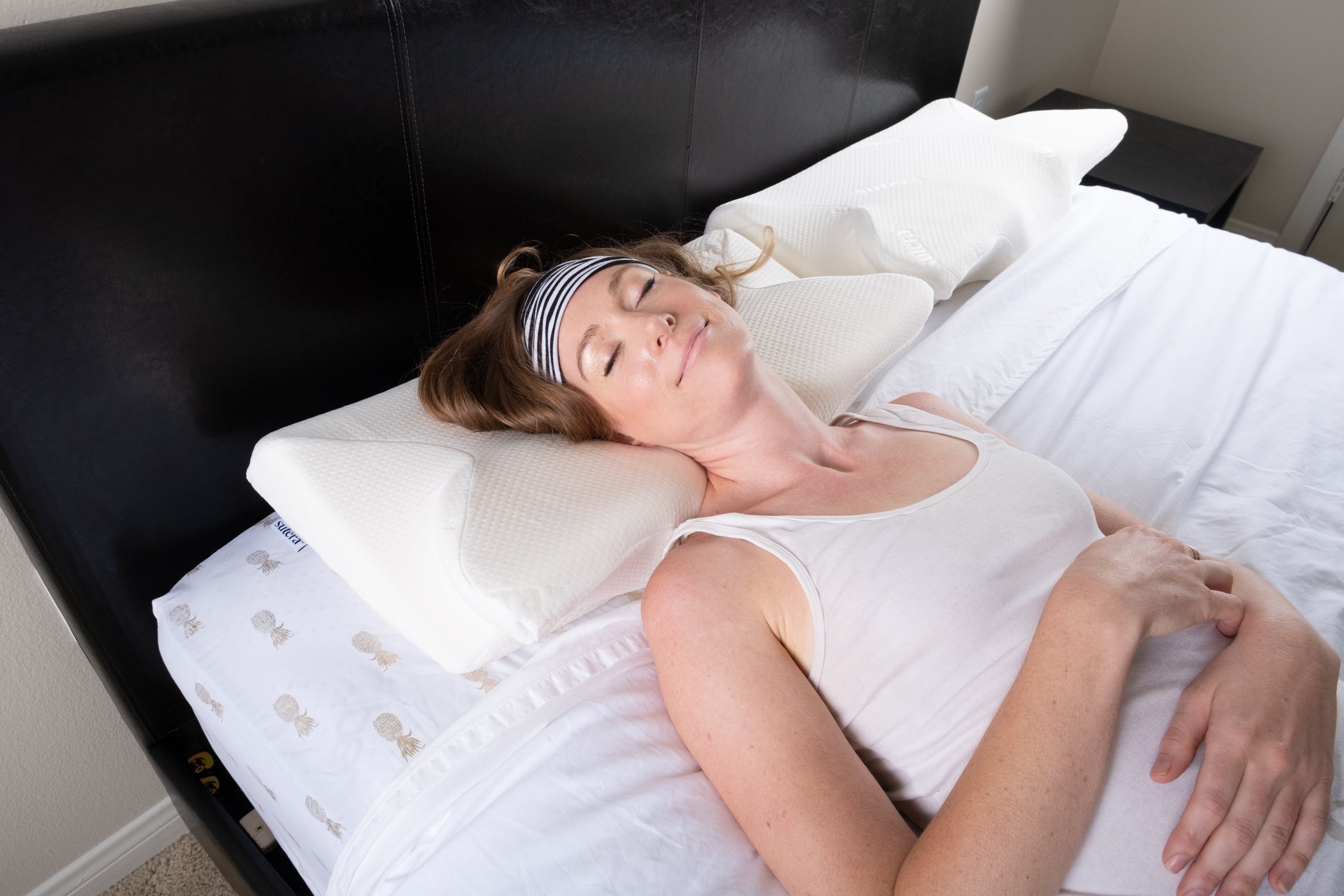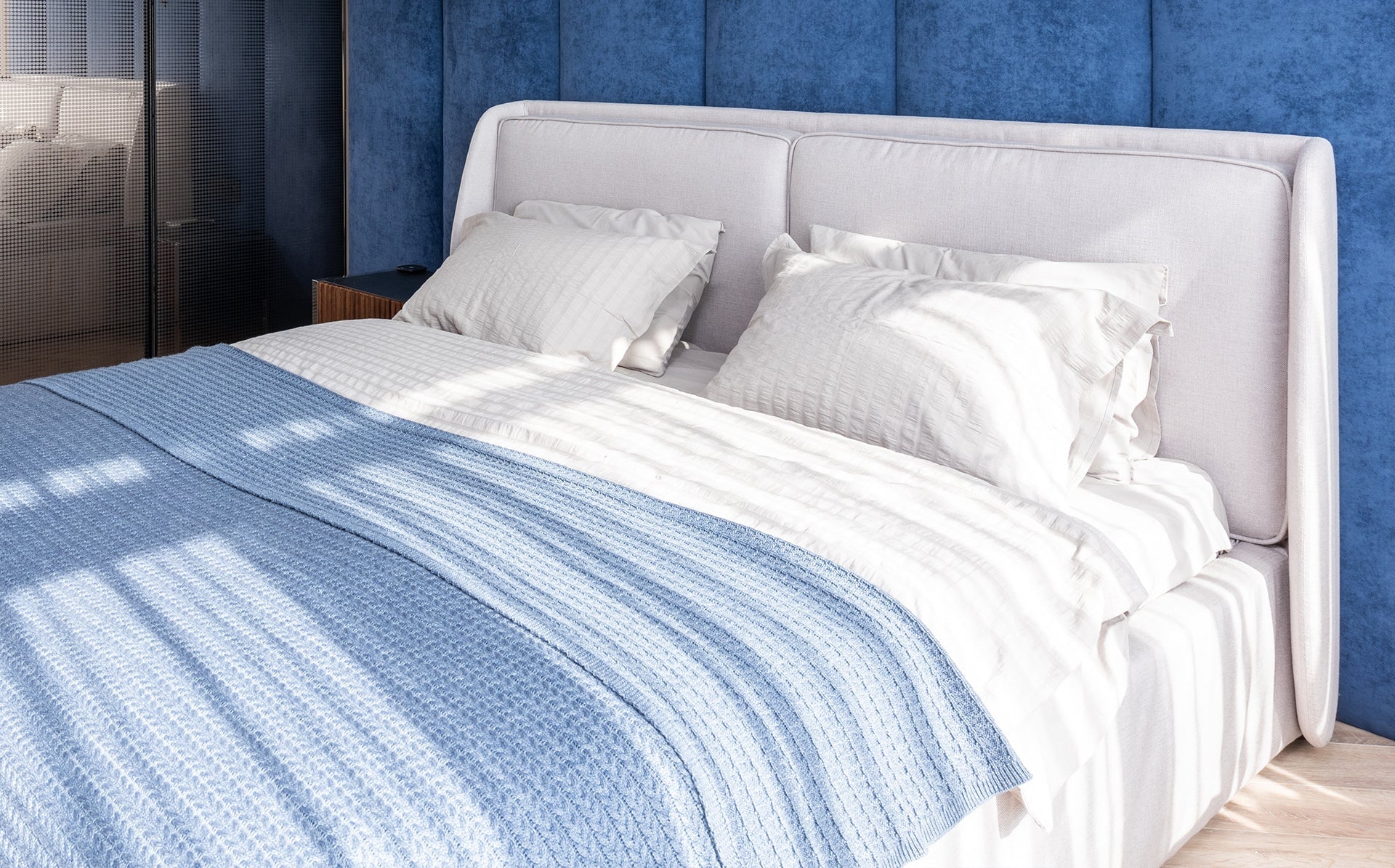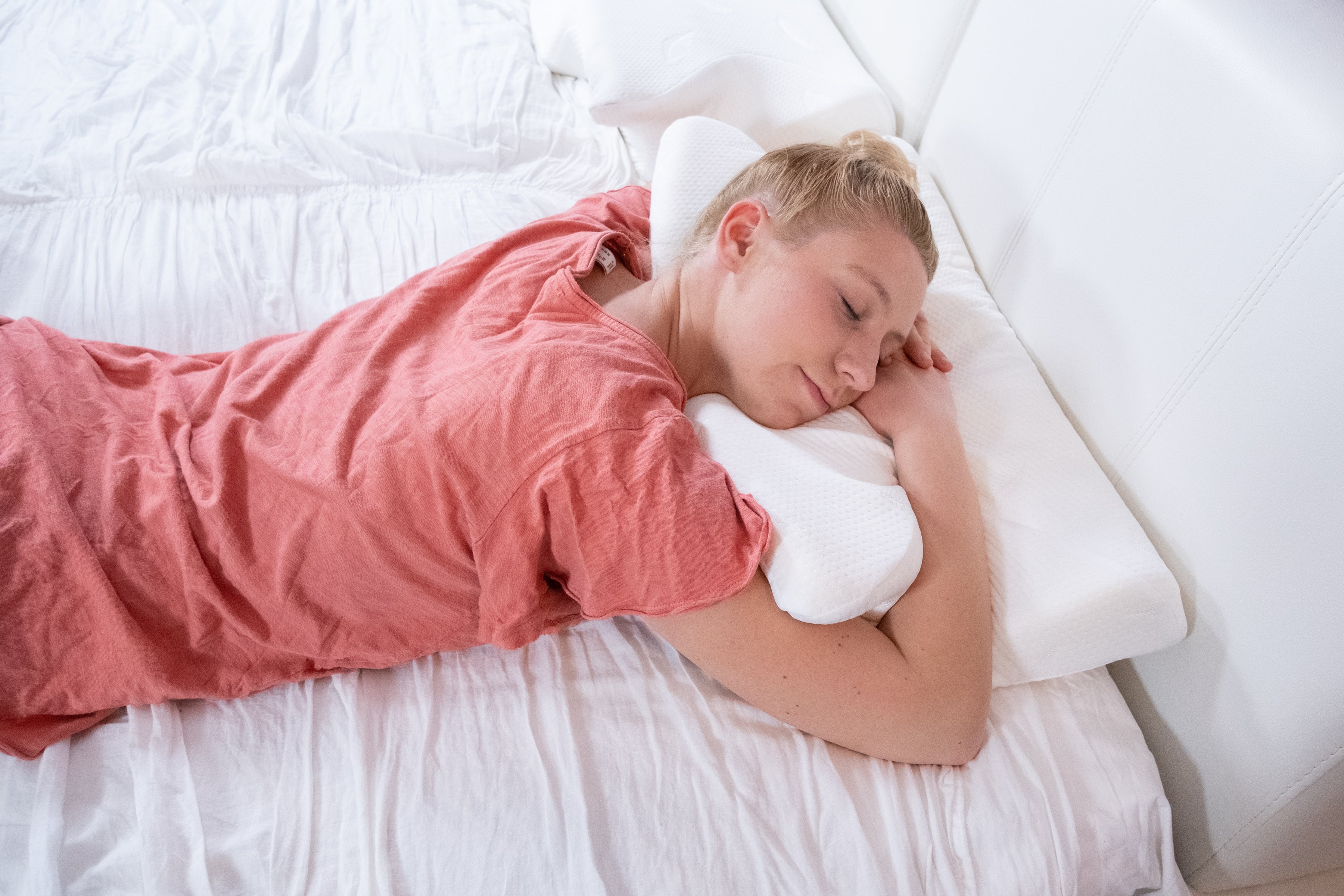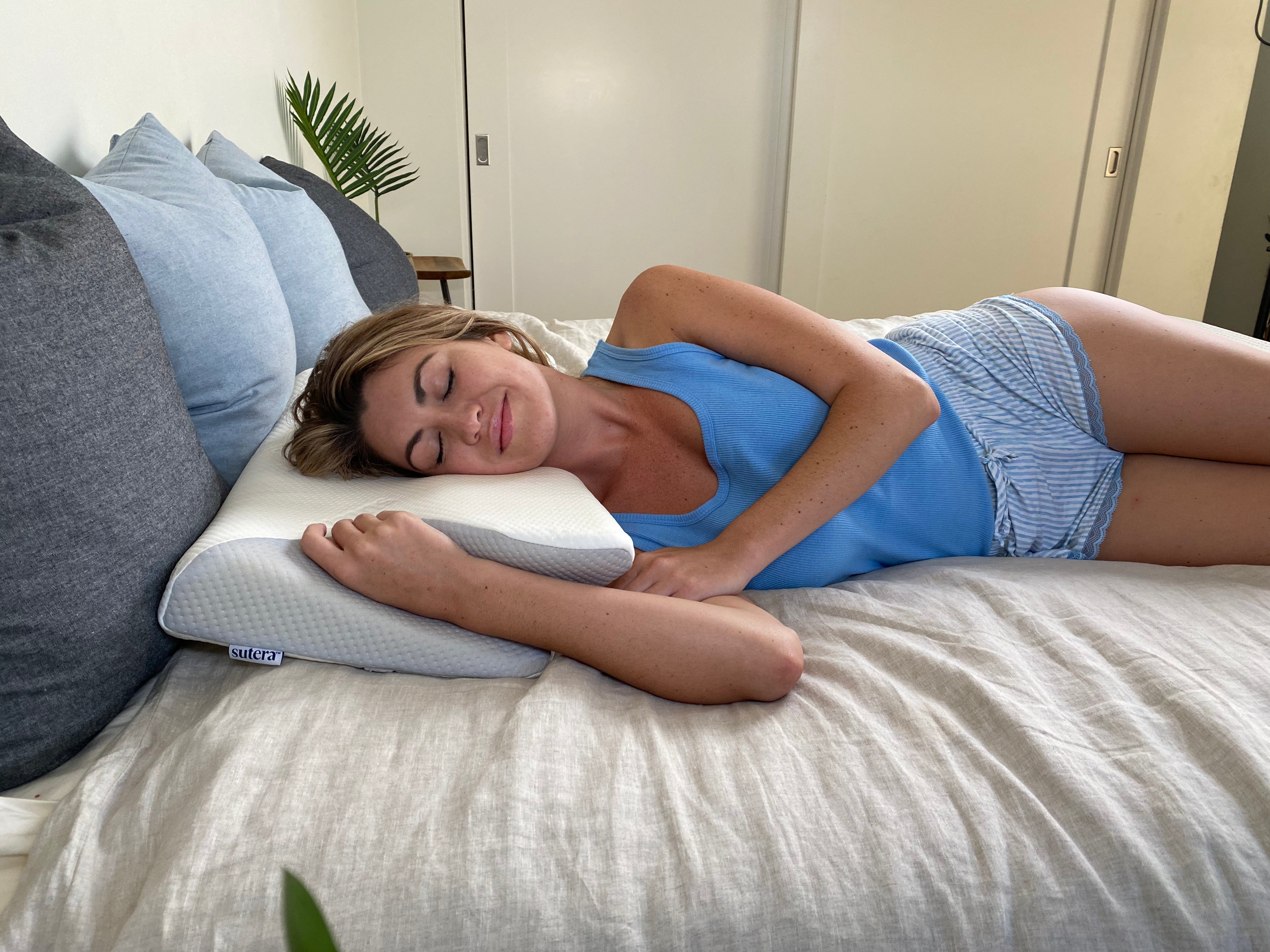The Science Behind Sleep and Your Immune System
Did you know that getting less than 7 hours of sleep per night can triple your risk of catching a cold? The intricate relationship between sleep and immune function has become one of the most fascinating areas of modern health research, revealing just how critical quality rest is for your body's defense systems.
According to research from Harvard Medical School, sleep deprivation significantly weakens your immune response, making you more susceptible to infections and reducing vaccine effectiveness. This isn't just about feeling tired – it's about your body's fundamental ability to protect itself.
How Sleep Strengthens Your Immune Response
During sleep, your body isn't just resting – it's actively strengthening your immune system through several critical processes:
1. T-Cell Activation and Function
T-cells are your immune system's elite soldiers, identifying and destroying infected cells. Research published in the Journal of Experimental Medicine shows that sleep enhances T-cell function through the release of specific proteins called integrins. These proteins help T-cells attach to and destroy virus-infected cells more effectively.
When you're sleep-deprived, stress hormones like adrenaline and noradrenaline inhibit T-cell function, leaving you vulnerable to infections. Just one night of poor sleep can reduce T-cell effectiveness by up to 70%.
2. Cytokine Production
Cytokines are messenger proteins that coordinate your immune response. During deep sleep, your body produces infection-fighting cytokines that help combat inflammation and disease. According to the Mayo Clinic, chronic sleep deprivation reduces cytokine production, leaving your body less equipped to fight off invaders.
Some cytokines also promote sleep, creating a beneficial cycle where good sleep enhances immune function, which in turn supports better sleep quality.
3. Antibody Formation
Your immune system creates antibodies to remember and fight specific pathogens. Studies show that people who don't get adequate sleep after vaccination produce fewer antibodies, reducing the vaccine's effectiveness. This is particularly important during flu season or when receiving any immunization.
The Hidden Dangers of Sleep Deprivation
The impact of poor sleep on your immune system extends far beyond catching the occasional cold. Chronic sleep deprivation has been linked to:
- Increased infection risk: People who sleep less than 6 hours per night are 4.2 times more likely to catch a cold compared to those who sleep 7+ hours
- Slower recovery times: Your body needs sleep to produce the cells and proteins necessary for healing
- Chronic inflammation: Poor sleep triggers inflammatory markers linked to heart disease, diabetes, and autoimmune conditions
- Reduced vaccine response: Sleep-deprived individuals show 50% less antibody response to flu vaccines
- Increased cancer risk: The World Health Organization has classified night shift work as a probable carcinogen due to circadian disruption
The Optimal Sleep-Immune Connection
Research from the National Sleep Foundation indicates that adults need 7-9 hours of quality sleep for optimal immune function. But it's not just about quantity – sleep quality matters equally.
Sleep Stages and Immune Function
Different sleep stages serve different immune functions:
Deep Sleep (N3): This is when your body produces the most growth hormone, essential for tissue repair and immune cell production. Deep sleep also facilitates the movement of T-cells to lymph nodes where they can respond to pathogens more effectively.
REM Sleep: During REM sleep, your brain processes the day's experiences and stressors, which indirectly supports immune function by managing cortisol levels and emotional well-being.
Creating an Immune-Boosting Sleep Environment
Your sleep environment plays a crucial role in both sleep quality and immune function. Here's how to optimize your bedroom for immune-supporting rest:
Temperature Control
The ideal bedroom temperature for sleep is between 60-67°F (15-19°C). This cooler environment not only promotes deeper sleep but also supports the natural drop in core body temperature that triggers immune-boosting processes.
Air Quality
Poor air quality can trigger allergies and respiratory issues that disrupt sleep and burden your immune system. Consider using an air purifier with a HEPA filter, especially during allergy season. Ensure proper ventilation and keep humidity levels between 30-50% to prevent mold and dust mites.
Light Management
Exposure to light, especially blue light, suppresses melatonin production. Melatonin isn't just a sleep hormone – it's also a powerful antioxidant that supports immune function. Use blackout curtains, avoid screens 2 hours before bed, or use blue light blocking glasses if screen use is necessary.
Comfort and Support
Physical discomfort can fragment your sleep, preventing you from reaching the deep sleep stages crucial for immune function. A supportive mattress and proper pillow alignment ensure uninterrupted sleep cycles.
Products like the Sutera Dream Deep Pillow are designed to maintain proper spinal alignment, reducing sleep disruptions from neck pain or discomfort. This uninterrupted sleep allows your body to complete full sleep cycles, maximizing immune-boosting processes.
Practical Strategies for Better Sleep and Immunity
Implementing these evidence-based strategies can significantly improve both your sleep quality and immune resilience:
1. Maintain a Consistent Sleep Schedule
Your immune system follows a circadian rhythm. Going to bed and waking up at the same time every day, even on weekends, helps synchronize your immune responses. Studies show that irregular sleep patterns can suppress immune function as much as sleep deprivation itself.
2. Create a Pre-Sleep Routine
A calming bedtime routine signals your body to begin immune-supporting processes:
- Take a warm bath or shower 90 minutes before bed
- Practice gentle stretching or yoga
- Use relaxation techniques like deep breathing or meditation
- Read a book or listen to calming music
- Avoid stimulating activities or stressful conversations
3. Optimize Your Diet for Sleep and Immunity
What you eat affects both sleep quality and immune function:
Foods that support both:
- Tart cherries (natural melatonin)
- Fatty fish (omega-3s and vitamin D)
- Nuts and seeds (magnesium and zinc)
- Yogurt and fermented foods (probiotics)
- Green tea (L-theanine and antioxidants)
Foods to avoid before bed:
- Caffeine (6+ hours before sleep)
- Alcohol (disrupts REM sleep)
- Heavy, fatty meals (cause discomfort)
- Sugary snacks (cause blood sugar spikes)
- Spicy foods (can cause heartburn)
4. Exercise Strategically
Regular exercise improves both sleep quality and immune function, but timing matters. Moderate aerobic exercise boosts immune cell production and improves deep sleep. However, intense exercise within 3 hours of bedtime can interfere with sleep. Aim for at least 150 minutes of moderate exercise weekly, preferably in the morning or afternoon.
5. Manage Stress Effectively
Chronic stress suppresses immune function and disrupts sleep. Cortisol, the primary stress hormone, should naturally decrease in the evening to allow for restful sleep and immune recovery. Stress management techniques that support both sleep and immunity include:
- Progressive muscle relaxation
- Mindfulness meditation
- Journaling
- Gentle yoga or tai chi
- Social connection and support
Special Considerations for Immune Support
During Cold and Flu Season
When illness risk is high, prioritizing sleep becomes even more critical. Studies show that people who increase their sleep duration by just one hour during flu season reduce their infection risk by 12%. If you feel early symptoms of illness, immediately prioritizing 9-10 hours of sleep can help your body mount a more effective immune response.
For Shift Workers
If you work irregular hours, protecting your immune system requires extra attention:
- Use blackout curtains and white noise machines for daytime sleep
- Maintain consistent sleep schedules even on days off when possible
- Consider melatonin supplements (consult your healthcare provider)
- Prioritize sleep hygiene and stress management
- Take strategic naps when needed, but keep them under 30 minutes
For Travelers
Travel disrupts both sleep patterns and exposes you to new pathogens. Protect yourself by:
- Adjusting your sleep schedule before departure
- Staying hydrated during flights
- Using sleep masks and earplugs
- Maintaining sleep routines in new environments
- Allowing recovery time after arrival
The Role of Sleep Products in Immune Health
While no product can replace good sleep hygiene, the right sleep accessories can significantly improve sleep quality and, by extension, immune function:
Pillows and Alignment
Poor neck alignment causes micro-awakenings throughout the night, preventing deep sleep stages. Memory foam pillows that maintain proper cervical support, like ergonomically designed options, can reduce these disruptions by up to 40%, allowing for more restorative sleep.
Mattress Considerations
A mattress that's too firm or too soft can cause pressure points and pain, leading to sleep fragmentation. Research shows that medium-firm mattresses generally provide the best balance of support and comfort for most people, promoting longer periods of uninterrupted deep sleep.
Temperature Regulation
Products that help regulate body temperature, such as cooling pillowcases or moisture-wicking sheets, can prevent night sweats and temperature-related awakenings that interrupt immune-boosting sleep stages.
Monitoring Your Sleep-Immune Health
Pay attention to these signs that your sleep may be compromising your immune system:
- Frequent colds or infections (more than 2-3 per year)
- Slow wound healing
- Persistent fatigue despite "adequate" sleep hours
- Digestive issues or changes in appetite
- Mood changes or increased stress sensitivity
- Difficulty concentrating or memory problems
If you experience these symptoms regularly, consider keeping a sleep diary to track patterns and identify areas for improvement. Note your sleep times, quality, and any factors that might affect your rest.
The Bottom Line: Prioritizing Sleep for Immune Resilience
The connection between sleep and immune function is clear and compelling. Every night of quality sleep is an investment in your body's ability to defend itself against pathogens, recover from illness, and maintain long-term health. By prioritizing sleep, you're not just avoiding fatigue – you're actively strengthening your body's natural defense systems.
Remember, improving sleep quality doesn't require perfection. Small, consistent changes in your sleep environment, routine, and habits can yield significant improvements in both sleep quality and immune function. Whether it's investing in better sleep products, maintaining a consistent schedule, or managing stress more effectively, each positive change contributes to a stronger, more resilient immune system.
Your immune system works hardest while you rest. Give it the time and conditions it needs to keep you healthy, and it will reward you with better resistance to illness, faster recovery times, and improved overall well-being. In our always-on world, prioritizing sleep isn't lazy – it's one of the smartest health decisions you can make.
Frequently Asked Questions
How many hours of sleep do I need for optimal immune function?
Most adults need 7-9 hours of quality sleep per night for optimal immune function. However, individual needs vary based on age, activity level, and overall health. During times of illness or high stress, you may benefit from additional sleep.
Can I "catch up" on sleep to boost my immunity?
While you can partially recover from sleep debt, consistently poor sleep followed by weekend "catch-up" sleep isn't as effective as maintaining regular sleep patterns. Your immune system functions best with consistent, quality sleep every night.
Does napping help or hurt immune function?
Short naps (20-30 minutes) can boost alertness and immune function without interfering with nighttime sleep. However, long or late-afternoon naps can disrupt your circadian rhythm and reduce the quality of nighttime sleep, potentially weakening immune responses.
How quickly does sleep deprivation affect immunity?
Even one night of poor sleep can reduce immune function. Studies show that sleeping less than 6 hours for just one night can decrease T-cell effectiveness by up to 70%. Chronic sleep deprivation (less than 6 hours nightly for weeks) significantly increases infection risk.
Are sleep supplements safe for immune support?
Natural sleep aids like melatonin, magnesium, and valerian root are generally safe for short-term use and may support both sleep and immune function. However, always consult with a healthcare provider before starting any supplement regimen, especially if you have existing health conditions or take medications.
Related Reading:







Share:
Best Orthopedic Pillow 2025: Science-Backed Guide to Neck Pain Relief
How Room Temperature Affects Deep Sleep Quality (What Scientists Say)